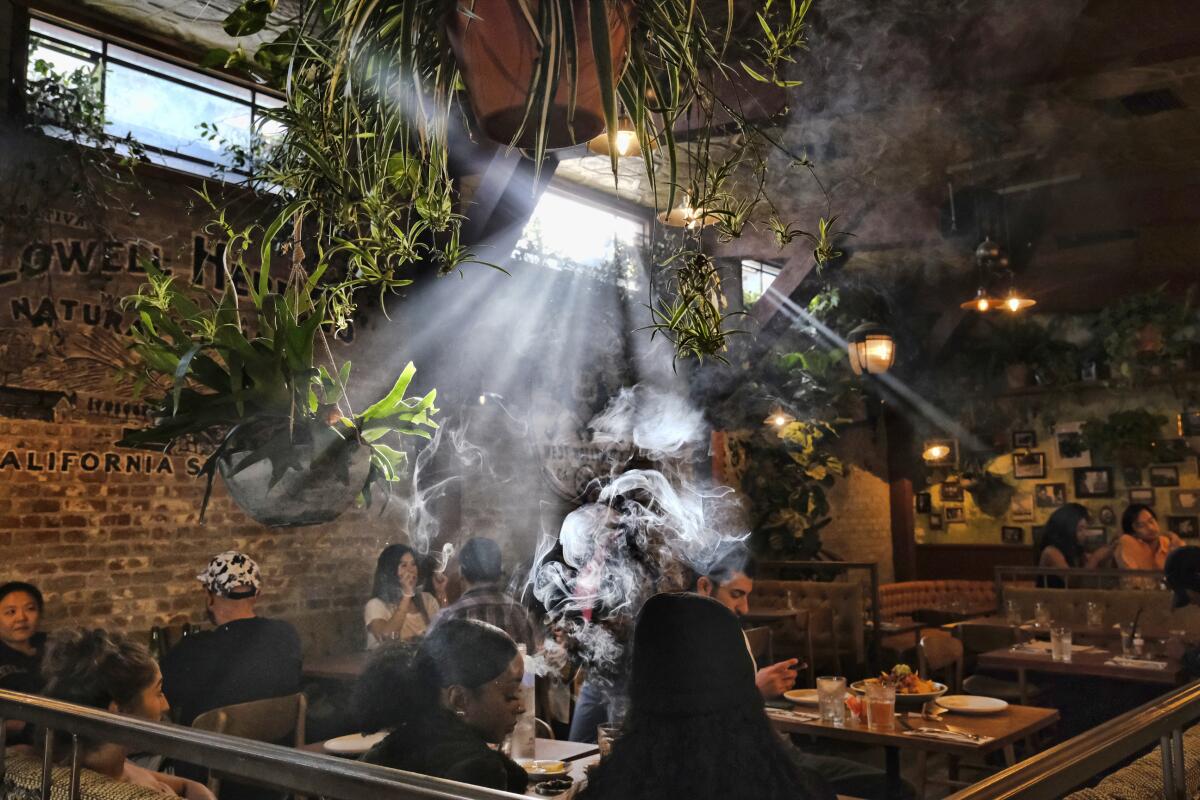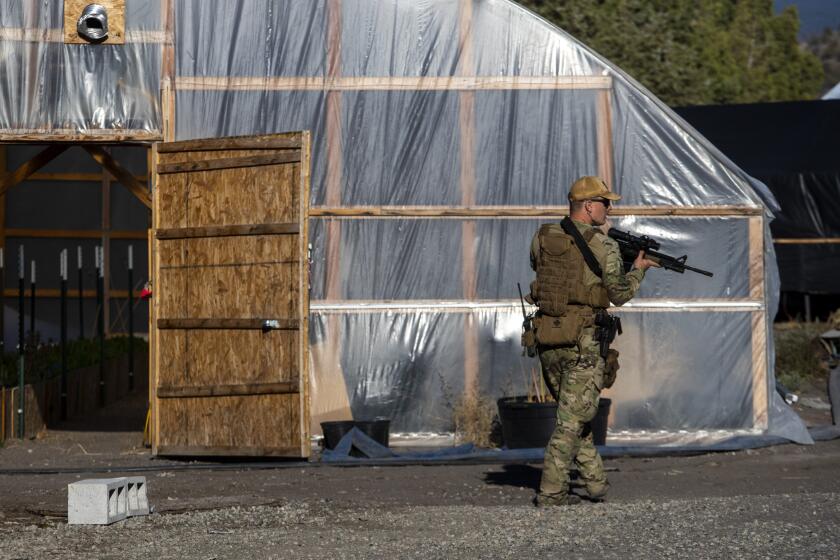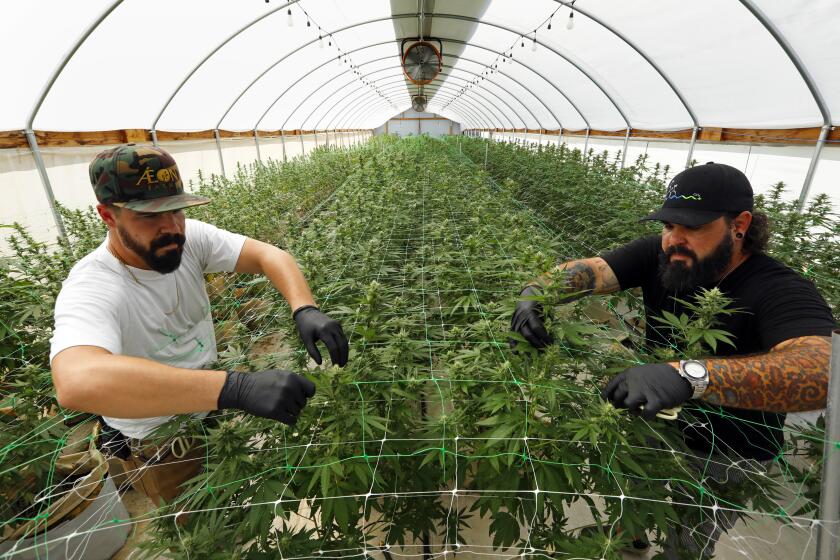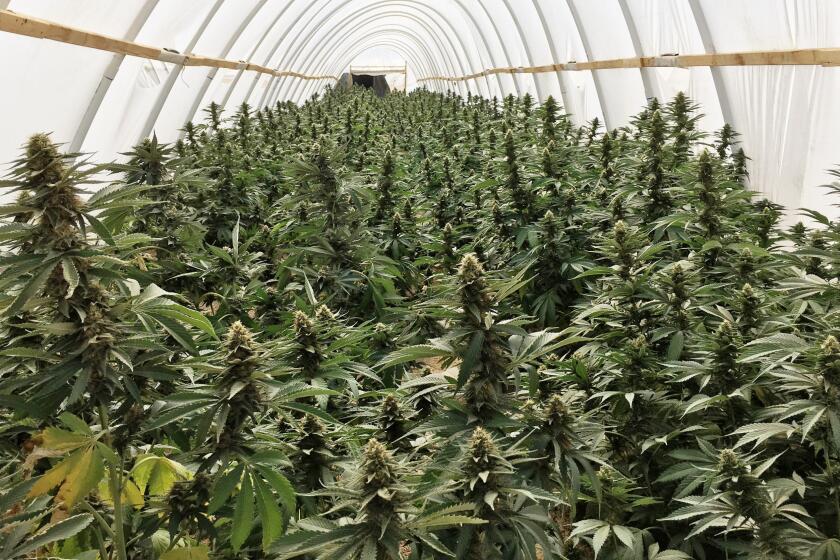Column: Bring on the cannabis cafes, California. Our nation needs them

More Americans now consume marijuana on a daily basis than drink alcohol every day, according to a recent study.
That’s welcome news for an industry that has been unfairly demonized by opportunistic politicians since the days of Nixon. The findings — based on data gathered between 1979 and 2022— are consistent with the wave of decriminalization under state laws, notably with California’s Proposition 215 back in 1996.
Opinion Columnist
LZ Granderson
LZ Granderson writes about culture, politics, sports and navigating life in America.
After the election that year, a law professor at Loyola was quoted in the Los Angeles Times as saying “this may be the baby boomers taking control.”
It wasn’t the boomers prevailing, but pragmatism.
Classifying the plant as a Schedule I illegal drug creates an opening for cartels to operate. Punitive taxation by states only fuels the black market.
About 1.3 million people in the U.S. are in state prisons. The most common reason for incarceration? Drug-related crimes. Given how much the country with the highest prison population loves pot, it makes sense to stop throwing people in jail for doing weed.
Today the only states where cannabis is totally illegal are Idaho, Kansas, South Carolina and Wyoming. Earlier this month President Biden announced plans to reclassify pot as a less dangerous drug.
The federal government’s plan to reclassify marijuana as a Schedule III drug will allow important medical research into how cannabis can help or hurt users.
In short: “Just say no” is dead. Long live “pass the dutchie ’pon the left-hand side.”
The next important step in having policy actually reflect society would be for Gov. Gavin Newsom to sign the “munchie bill” that’s likely to be headed his way soon.
Last year Assembly Bill 374 — which would make it legal for dispensaries to become cafes and offer food as well as host live events — passed the Assembly 66-9 and the Senate 33-3.
The licensing, taxing and regulatory system imposed on those who hope to sell cannabis legally are crippling and put them at a huge disadvantage.
Surprisingly, Newsom vetoed the bipartisan bill in October, citing concerns about providing a smoke-free work environment for employees. That seems nonsensical, considering that it is already legal to consume marijuana in California dispensaries. AB 374 would have just made it possible to buy a bag of chips while you do it.
Marijuana cafes have existed in Amsterdam since the 1970s. Last summer I spent a few hours listening to music and eating homemade desserts at the first marijuana cafe in North America. Fittingly called New Amsterdam Cafe, the popular hangout opened in Vancouver in 1998 and is as chill as Issa Rae’s Hilltop Coffee.
However, vibes are not the only reasons Assemblymember Matt Haney (D-San Francisco) introduced AB 374. For him it’s also a matter of fairness and trying to level the playing field.
“Small businesses have to follow every rule, and yet you’re telling them they can’t adapt and innovate and offer something people want,” he said. “The ones who follow the rules should be able to offer an experience. People pay a lot to sit in a winery. We have cigar lounges. This is really no different.”
Despite law enforcement’s best efforts, illegal pot is estimated to have pulled in more than $8 billion in 2020 compared with $4 billion for legal. However, it’s the small-business owners who also have the burden of taxes, regulations and fines. All of which eats away at profits and businesses’ ability to grow. Haney said his proposal not only would allow small business owners to diversify their income stream, but also would encourage people to come out of their post-pandemic cocoons and socialize again.
California began liberating cannabis culture in 1996. It’s only right the state continues to correct a narrative that was born not from science but from President Nixon’s prejudice. It’s because of that cloud hanging over cannabis that advocates of decriminalization had to sweeten the deal for voters by promising a financial windfall for the state, which of course is why legal pot is ridiculously overtaxed.
Haney said he knows the cafes won’t solve all of the problems that dispensary owners face because of competition from the black market, but it would at least provide owners with more ways to make money. Haney said he worked with both Newsom’s office and the Department of Cannabis Control before reintroducing the bill. He said the new version, AB 1775, addresses the governor’s concern for the work environment, and it also has union support. It recently passed the Assembly 49-4 and is headed to the Senate.
My hope is that the munchie bill meets Newsom’s approval. With proper ventilation for employees and customers alike, marijuana cafes could provide local artists with new venues and add another branch of tourism.
“I’m one of the younger legislators, and I see how excited my friends are,” 42-year-old Haney told me. “I have a couple of colleagues who represent suburban districts and one came to me and said, ‘All the suburban moms are excited about your cannabis cafe bill.’ Post-pandemic, it’s been hard to get people to get out, and I think this just makes sense.”
It really does.
More to Read
A cure for the common opinion
Get thought-provoking perspectives with our weekly newsletter.
You may occasionally receive promotional content from the Los Angeles Times.















